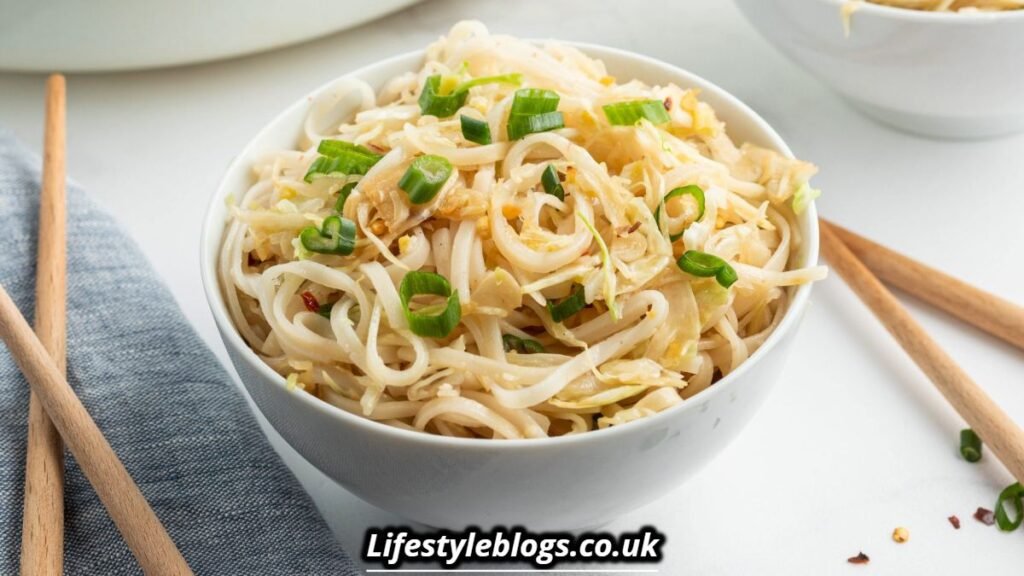Eating noodles is more than just a delicious meal in many cultures—it is often linked to good luck and the wish for a long life. But where does this idea come from, and is it true? Let’s explore the tradition of eating noodles for longevity, its cultural significance, and what different religions say about it.
Why Are Noodles Associated With Long Life?
In many East Asian cultures, especially in China, Japan, and Korea, long noodles symbolize a long life because of their length. Eating noodles without breaking them is believed to bring health and longevity for the coming year.
This tradition is especially popular during birthdays and celebrations like the Lunar New Year.
The Tradition of Eating Long Life Noodles
- In China, “Longevity Noodles” (called shou mian 寿面) are served to celebrate birthdays and special occasions. The longer the noodle, the longer the life.
- The key is to eat the noodles carefully without breaking them. Breaking the noodles is thought to shorten one’s life.
- Similar customs exist in Japan and Korea, where noodles are eaten to symbolize wishes for long life and good health.
Cultural and Religious Views
Chinese Culture
The tradition of longevity noodles comes from ancient Chinese beliefs linking food symbolism with health and fortune. Noodles represent the wish for a long and prosperous life.
Buddhism
Many Buddhists value food as a form of nourishment that supports the body and mind on the path to enlightenment. Eating symbolic foods like noodles during festivals aligns with respect for life and longevity.
Taoism
Taoist philosophy emphasizes harmony with nature and longevity. Foods symbolizing long life, such as noodles, are part of rituals and celebrations promoting balance and vitality.
Shintoism (Japan)
In Shinto tradition, rituals to honor ancestors and nature often include special foods like long noodles to bless health and longevity.
Islam
In Islam, the concept of long life is considered a blessing from Allah (God), and it is encouraged to be grateful for all provisions. While noodles specifically don’t have a special religious significance, Muslims are encouraged to eat wholesome, halal food with gratitude and to make du’a (prayers) for health and longevity.
The Prophet Muhammad (peace be upon him) taught that life span and sustenance come from Allah’s decree. Therefore, Muslims focus on trusting in Allah’s plan while living a balanced and healthy lifestyle.
Eating food with the intention of good health and praying for a long life is a practice aligned with Islamic values. The tradition of eating symbolic foods for blessings may not be widespread in Islam, but gratitude and prayer remain central.
Is It Really Good Luck?
From a spiritual and cultural viewpoint, eating noodles is a symbolic act of wishing and attracting long life and health. Whether or not it literally changes your lifespan, the tradition encourages mindfulness, gratitude, and celebration of life.
Scientific View
Noodles, when eaten as part of a balanced diet, provide carbohydrates and energy. While noodles themselves don’t guarantee longevity, eating with intention and maintaining healthy habits can contribute to a longer life.
My Personal Experience
I’ve enjoyed eating longevity noodles during Lunar New Year celebrations with friends. It’s a fun way to connect with culture and focus on positive intentions for the year ahead.
Final Thoughts
Is it good luck to eat noodles for long life? In many cultures, yes—it’s a beautiful tradition symbolizing health and longevity. Whether you believe in luck or symbolism, eating long noodles can be a meaningful way to celebrate life’s milestones.
Next time you enjoy noodles, take a moment to appreciate the tradition behind them and the wishes they carry.
Do You Have Any Food Traditions?
Do you or your family have special foods for good luck or health? Share your stories in the comments—I’d love to hear!

